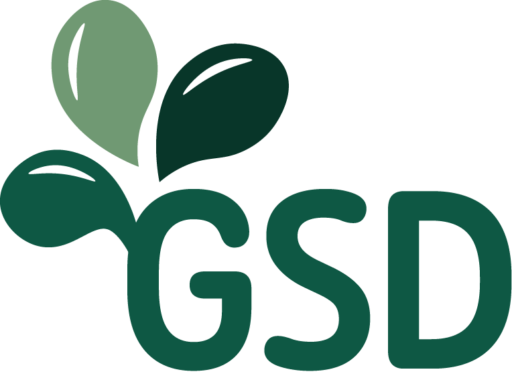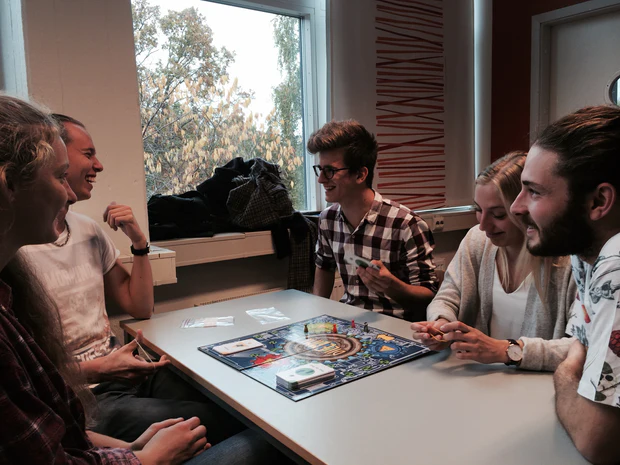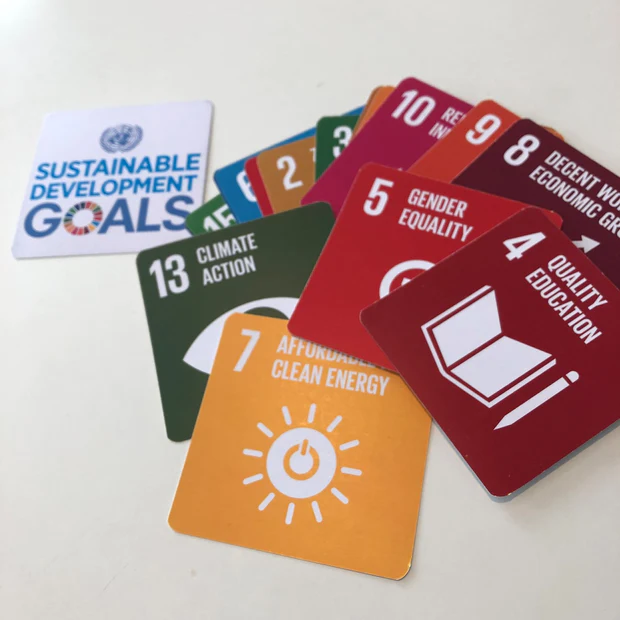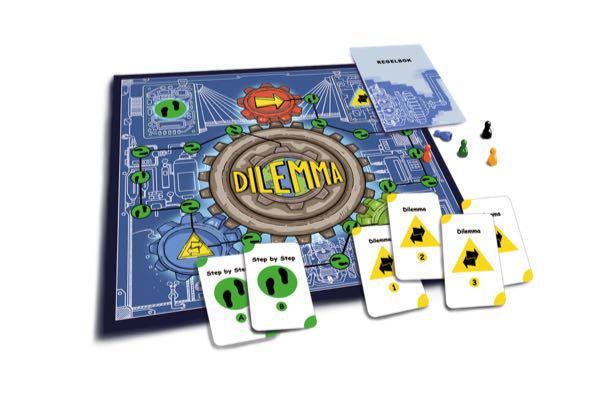Dilemma – a game for education
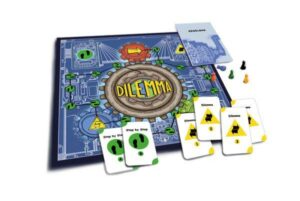
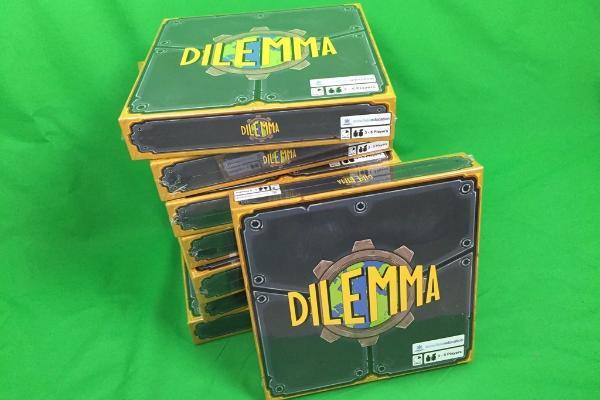
Dilemma is a quiz-like board game for 3-5 players, and a fun way to learn about sustainable development. The game also encourages participants to reflect, to debate and to think critically about sustainability dilemmas, which often have both moral and ethical dimensions.
The game is ideal for use in degree-level Engineering studies or in natural science oriented classes in high school. The box includes several sets of cards, aimed at different levels of knowledge and based on different topics, which could be covered in related lectures, briefings, or assignments.
Dilemma was developed to be used in classroom exercises or seminars, as a fun and interactive learning method for students. It is also a great tool for teachers, who can use the ‘dilemmas’ found in the box as a starting point for discussions, assignments or case studies.
- More Info
- Gallery
- Video
- Contact
- Challenge Tackled
Learn more about Sustainability in a funny way and learn more about other people´s values and world views.
We have different values and worldviews and therefore different solutions to the social, ecological and economic problems we face. We need to learn to listen curiously and understand other people’s solutions and not just stick to our own.
- Target group, beneficiaries or clients
- Management groups and all co-workers. Students both at university and in university of applied science
- Solution
- The Dilemma board game is an interactive tool for introducing the concept of sustainable development. The game challenges people to go outside their comfort zone, to discuss and debate, think critically, as well as explain key concepts to one another.
- Innovation
- You can play Dilemma as a board game, but you can also play it on-line or in the field letting people be the game markers moving around in a field-board-game. Perfect during the pandemic.
- Unique Selling Point
- Progression in the Dilemma game is based on two different types of question cards: knowledge-based quiz questions and dilemma questions – both linking to sustainability. Knowledge-based questions can be used as a learning activity in their own right or as a knowledge-check in more advanced settings. The dilemma questions act as an incentive to initiate discussions in relevant areas.
- Impact
- Innovation
- text
- Feasibility/Transferability
- It is very easy to understand the board game. To play the game on-line is a bit more complicated.
https://www.canva.com/design/DAFVSXKZsu8/QnV31h1sojBnLtyL72iIgA/watch
